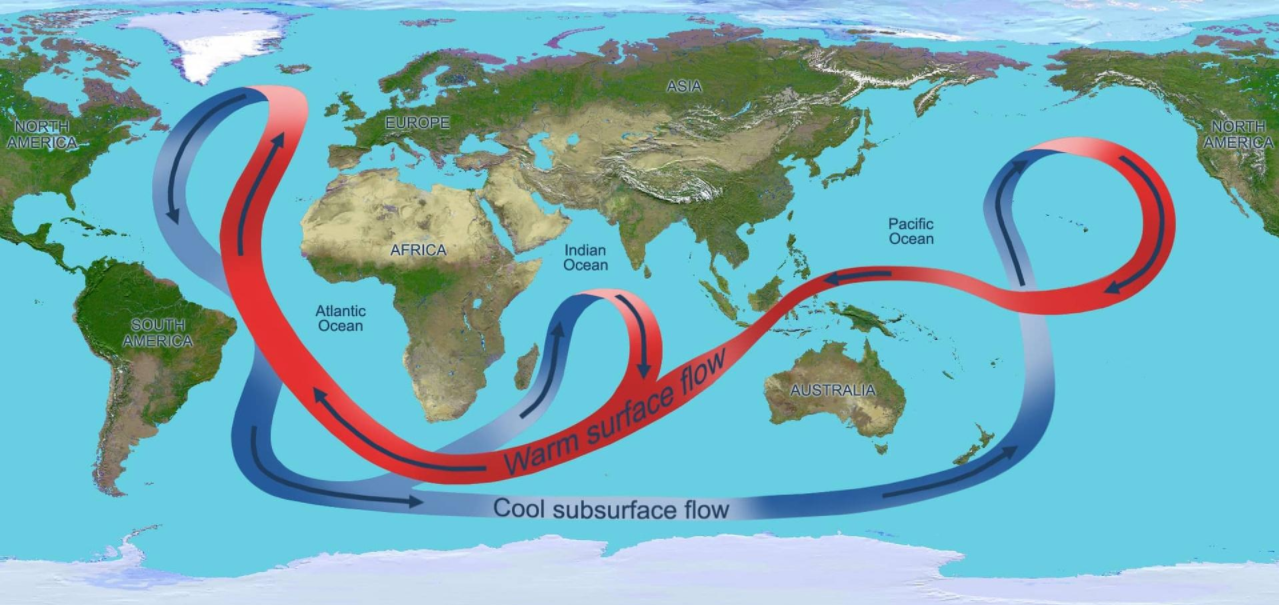PBS North Carolina interviewed OOMG head Dr. Ruoying He for expert insight and analysis in Frank Graff’s March 1, 2021 article “New Study Shows the Gulf Stream Could Be Changing.” The article is one of many in recent days explaining to a popular audience the science in the scientific journal article “Current Atlantic Meridional Overturning Circulation weakest in last millennium” by Caesar et al. (2021).
The Caesar et al. article examined 11 conditions related to the Atlantic Meridional Overturning Current (AMOC) and found that nine of them showed the AMOC is at its slowest in 1,600 years. The AMOC is slowing due to climate change’s impact on polar ice. As the poles warm, Arctic ice melts, adding fresh water to the north Atlantic Ocean. This decreases the density of north Atlantic water, which leads to a reduction in the amount of dense water that sinks at the northern end of the AMOC. With less water sinking, the ocean-wide conveyor belt of surface and subsurface flow slows.
Dr. He explained the implications of the slowing AMOC for North Carolina. The Gulf Stream, as little as 20 miles off the NC coast, is the local branch of the AMOC current system. The Gulf Stream is about 1 m higher than the ocean at the NC coast. As the Gulf Stream slows, coastal sea level would increase. In addition, the Gulf Stream flow creates upwelling of nutrient-rich deep water that supports the marine food web. A slower Gulf Stream would lead to less upwelling, a less robust local food web, and ultimately less abundant fisheries close to NC. Finally, a slower Gulf Stream would be less effective in carrying tropical ocean heat away from NC, potentially leading to changes in precipitation and to increased hurricane intensity.
Don’t panic yet, advises Dr. He. But take climate change seriously.

Caesar, L., McCarthy, G.D., Thornalley, D.J.R. et al. Current Atlantic Meridional Overturning Circulation weakest in last millennium. Nature Geosciences (2021). https://doi.org/10.1038/s41561-021-00699-z

